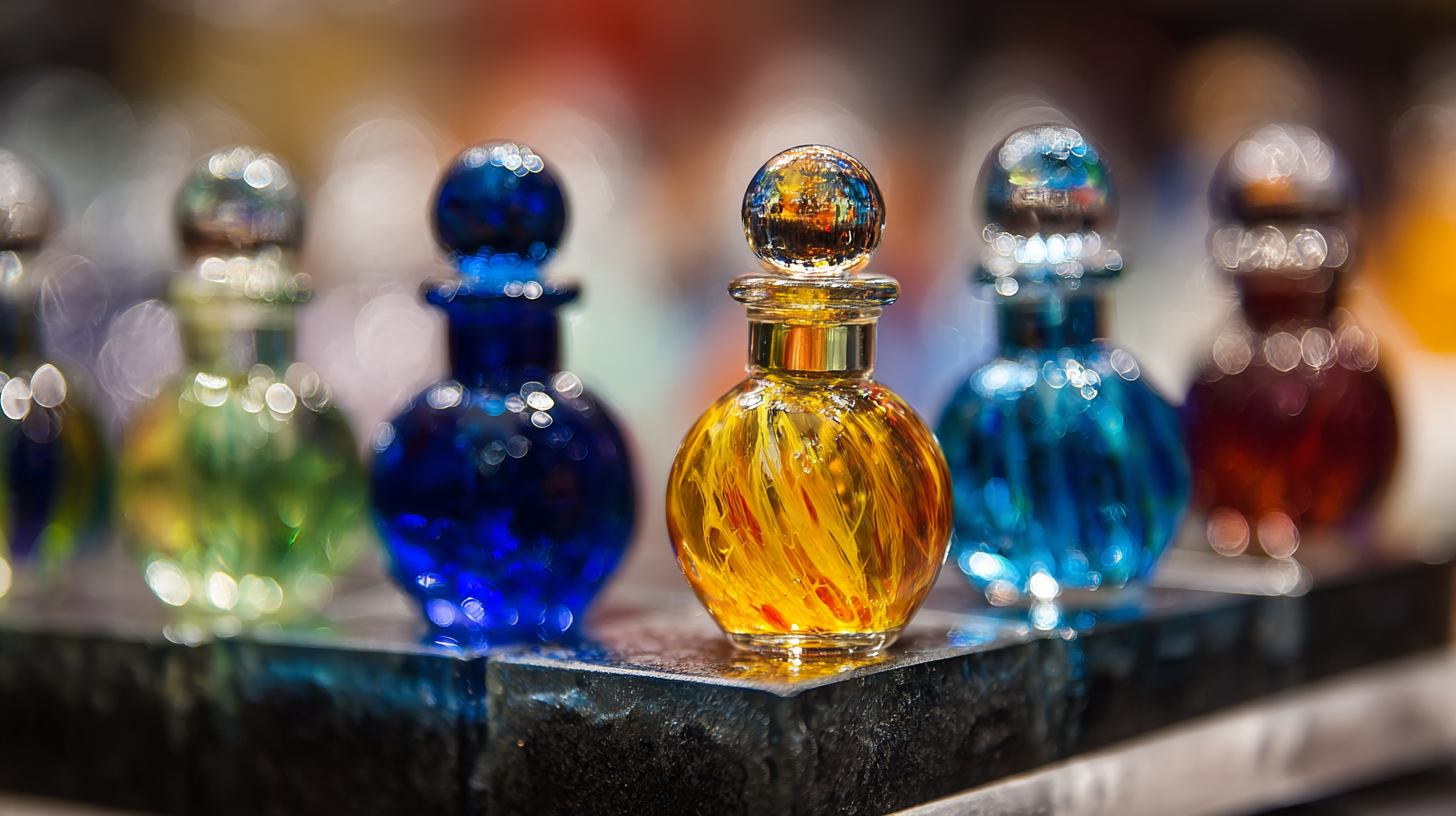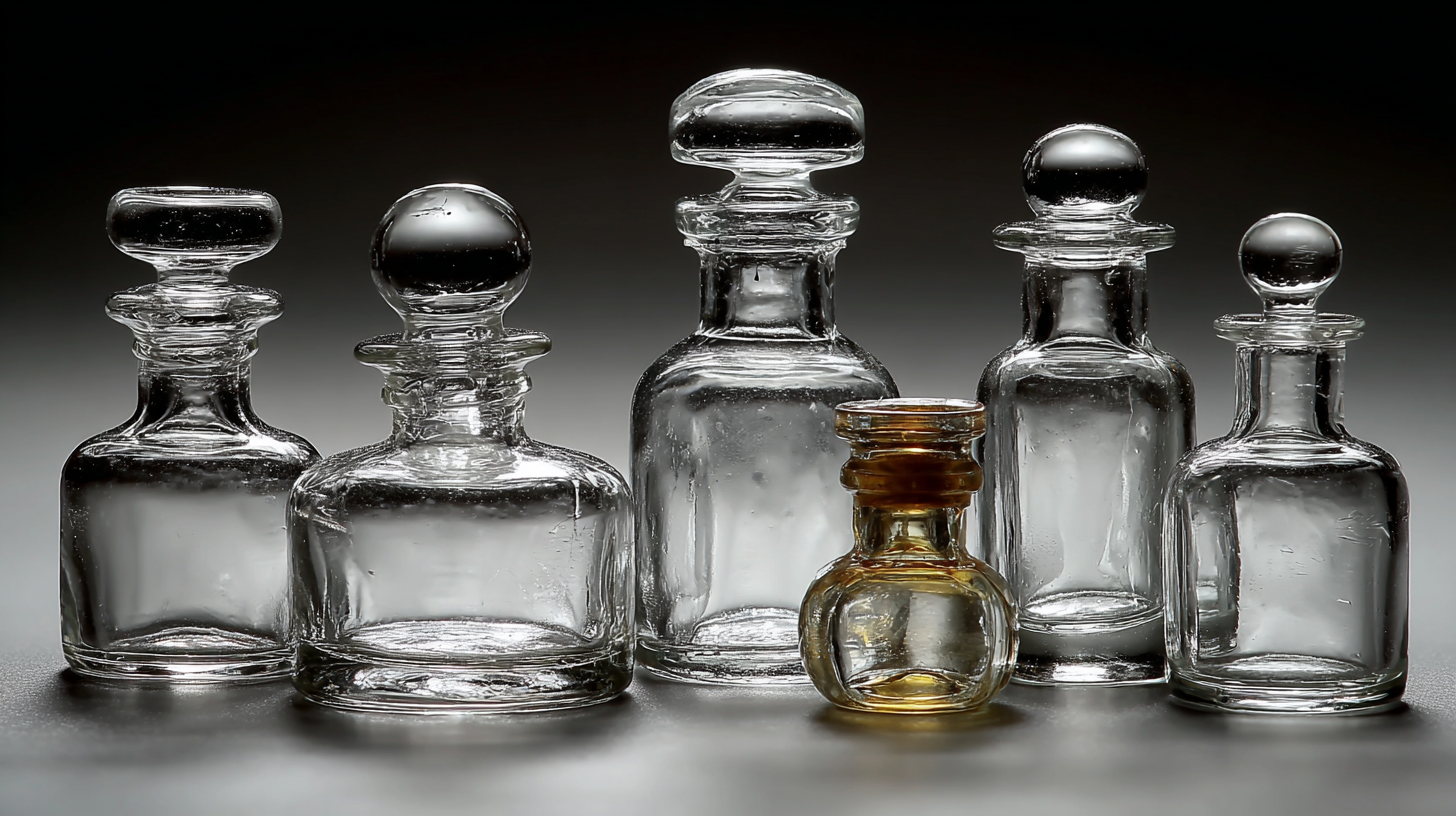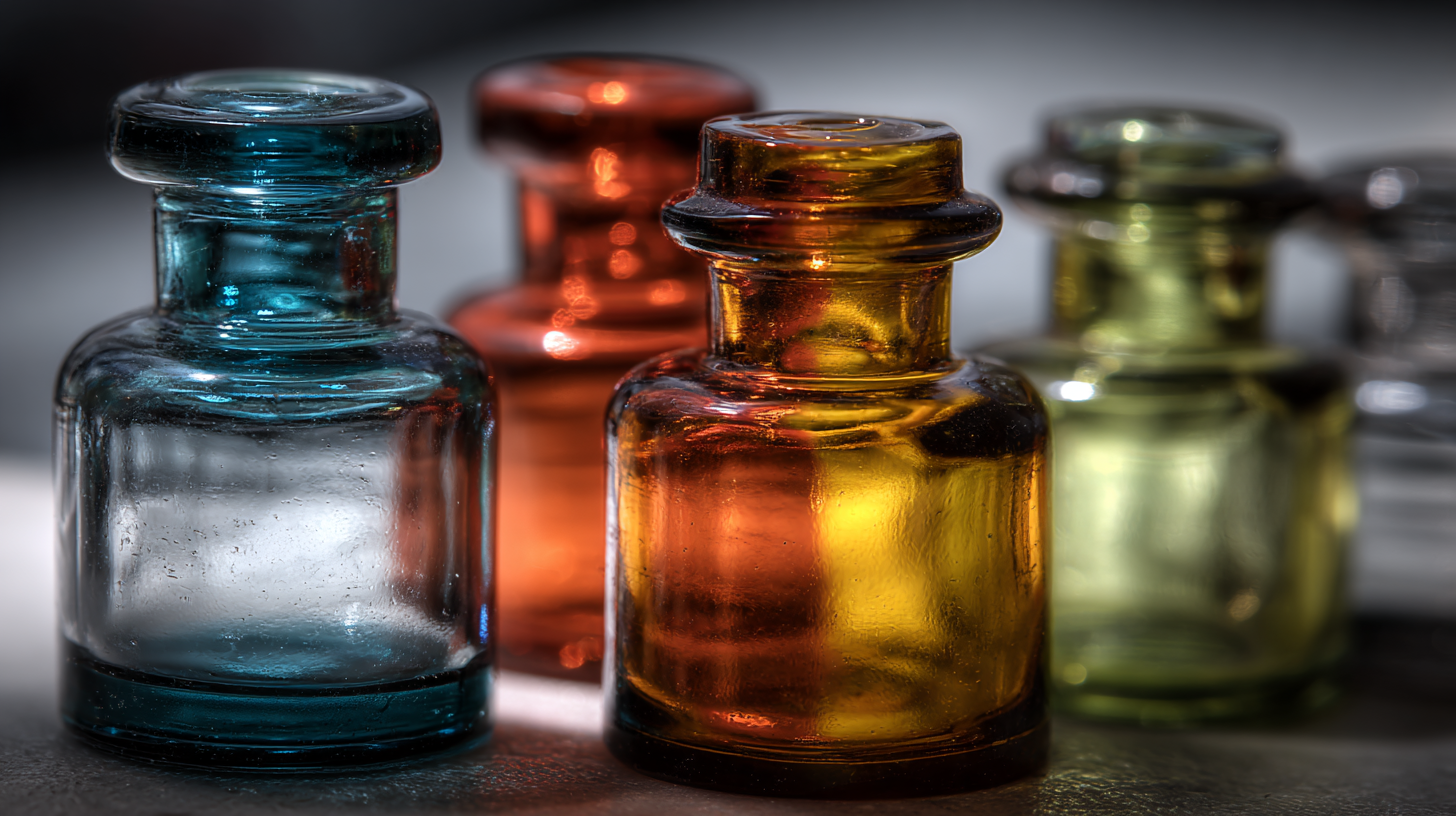
When it comes to enhancing both functionality and aesthetic appeal in various projects and storage solutions, Glass Stoppers can play a pivotal role. These versatile and stylish closures not only secure contents but also elevate the visual charm of jars, bottles, and containers. Selecting the right glass stoppers involves considering several factors, including size, shape, and design, to ensure they complement your specific needs and styles. Whether you're a DIY enthusiast looking to add finishing touches to your crafts, or someone aiming to organize your pantry or workspace, understanding the different types of glass stoppers available can make a significant difference in your overall project outcome. In this guide, we will explore how to choose the perfect glass stoppers, addressing key considerations that will help you make informed decisions for an elegant and practical storage solution.

When embarking on any DIY project or looking to enhance storage solutions, the significance of glass stoppers cannot be overstated. These small yet impactful components greatly improve the versatility of containers. According to a report from the National Association of Container Manufacturers, over 62% of professionals in the packaging industry cited the need for adaptable solutions as a primary driver for adopting glass containers with stoppers. This statistic highlights how glass stoppers contribute to greater functionality and aesthetic appeal, making them essential to a wide range of projects.
Furthermore, glass stoppers play a critical role in maintaining the integrity of the stored contents. Research from the Glass Packaging Institute indicates that glass, being non-porous and inert, is capable of preserving flavors and aromas without leaching any harmful chemicals. This property is particularly valuable in sectors like food and beverage, where over 70% of manufacturers prefer glass for its ability to ensure product quality and safety. By understanding the multifaceted benefits of glass stoppers, consumers and professionals alike can make informed choices that enhance both their projects and storage requirements.

When it comes to selecting the ideal glass stoppers for various projects and storage needs, understanding the different types available is essential. Glass stoppers vary widely in design, functionality, and application, making it crucial to match the right type to your specific requirements. For instance, some projects may benefit from traditional cork-styled stoppers, while others might require hermetic seals to ensure optimal preservation and containment. The choice of stoppers not only affects the aesthetic appeal but also the functionality of your storage solutions.
In various industries, glass stoppers are employed for their versatility and inert properties. For example, in laboratory settings, stoppers with high thermal and chemical resistance are vital for maintaining the integrity of samples. Additionally, the development of specialty glass stoppers, including those with bioactive properties, has emerged to enhance storage conditions for sensitive biological materials. Considering these different applications allows you to make an informed decision that meets both practical needs and project objectives, ensuring that your choice of glass stopper truly enhances your endeavor.
When selecting glass stoppers for your projects and storage needs, evaluating the material options is crucial. Glass stoppers are primarily made from soda-lime, borosilicate, and lead glass, each offering unique properties tailored to specific applications. According to a recent report by the Global Glass Packaging Market, the demand for borosilicate glass, known for its high thermal resistance and chemical durability, is projected to grow by 5.2% annually through 2025. This makes it an ideal choice for lab environments and storage of volatile substances, where traditional glass might fail under pressure or temperature changes.
On the other hand, soda-lime glass remains the most widely used glass type, largely due to its affordability and adequate performance for many standard applications. A study from the Container Recycling Institute highlights that over 75% of glass containers in the market are made from soda-lime glass, emphasizing its prevalence. However, for decorative projects where aesthetics are paramount, lead glass stoppers, with their brilliant clarity and weight, can elevate the overall appearance while ensuring a secure seal. Ultimately, understanding the properties and applications of these glass types will help you choose the perfect stopper for both functionality and style.
When it comes to enhancing your storage solutions, exploring alternative stoppers can be both a creative and practical endeavor. For instance, silicone stoppers provide a flexible and airtight option for various containers, making them ideal for preserving the freshness of food items.
According to a recent industry report, the flexible packaging market is predicted to reach $300 billion by 2026, with a significant rise in the demand for innovative sealing solutions. This shift points to the growing preference for materials that offer durability and efficiency, characteristics that silicone stoppers inherently possess.
Beyond traditional materials, wooden or cork stoppers can add an earthy, aesthetic touch to glass jars, aligning with the increase in consumer demand for sustainable and eco-friendly products. The global cork market is expected to grow at a CAGR of 8.5% from 2021 to 2031, indicating a rising inclination toward natural materials. Such stoppers not only provide functional sealing but also contribute to the visual appeal of your storage items, particularly for artisan projects. Exploring these options allows for unique customization while meeting the growing environmental considerations of consumers today.
When selecting glass stoppers for your bottles and containers, ensuring a secure fit is paramount. Compatibility with the neck size and shape of your bottles plays a crucial role in maintenance and usability. Many projects, especially in crafting or food storage, hinge on the reliability of your stoppers. It is essential to measure the bottle’s opening accurately, as a snug fit will prevent leaks and protect the contents from contamination. Make sure to consider the material of the stopper as well, as this can impact both functionality and aesthetics.
Additionally, testing various stoppers is beneficial to determine the best match for your specific needs. For instance, if you're using the stoppers for water bottles, look for designs that complement reusable options by providing excellent sealing capabilities. Compatibility is not just about size; it’s also about the design of the stopper mechanism. A well-fitted stopper will ensure that your beverages remain fresh and free from external elements, making your glass containers more effective for storage. Always consider the ease of use and durability to ensure that your projects and storage solutions are as effective as possible.

